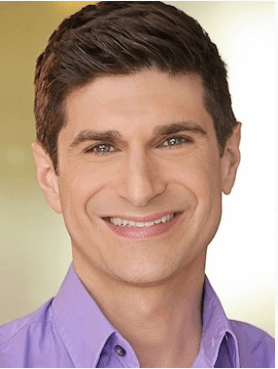
Ron Frederick and Timothy J. Beyer are on a mission to enhance the lives of gay men who find it challenging to feel present in their lives and closer to the people they love.
In their upcoming workshop, Emotional Mindfulness, Connection and Healing for Gay Men, Ron (pictured right) and Timothy (below) explore the origins of certain fears inherent in gay men, how those fears create a sense of detachment from the wisdom and power within and present guideposts toward empowerment.
They draw from their work as psychologists and co-founders of the Center for Courageous Living, a psychotherapy, coaching and consultation practice in Beverly Hills.
“Most gay men grow up in heterosexual families and may have knowingly or unknowingly learned to bury and distance themselves from feelings they perceived to be unsafe or unacceptable to others,” Timothy says.
“These previously perceived as unacceptable feelings may have been a threat to the safety and security of emotional connection with early caregivers and family members. Our hope is to shed light on new aspects of self-awareness and increased emotional mindfulness.”
For many years, Ron and Timothy’s work in the field of psychology has fueled an ever-evolving effort to help gay men. Ron is the author of Loving Like You Mean It: Use the Power of Emotional Mindfulness to Transform Your Relationships and Living Like You Mean It: Use the Wisdom and Power of Your Emotions to Get the Life You Really Want. Timothy has been in practice for more than 20 years with a sharp focus on helping others find clarity and achieve their personal goals.
“What I love most about this work is that I can experience being with others during their journey to self-discovery,” Timothy says. “It is incredibly gratifying to witness an awakening with somebody when they see new options and opportunities or new ways of being in the world, especially when they connect within to a deeper emotional mindfulness.”
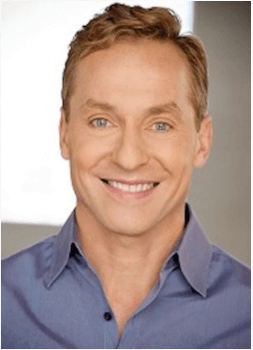
Ron and Timothy also ground their work in contemporary neuroscience and cull from a variety of healing and growth models, such as Accelerated Experiential Dynamic Psychotherapy (AEDP), which revolves around experientially making the most out of opportunities for both healing and transformation. One of the significant benefits of AEDP is the undoing of aloneness.
To that end, their workshop arrives at a vital juncture. According to the American Psychiatric Association, gay men experience adverse mental health outcomes, including mood disorders, more frequently than heterosexual men.
Another recent study conducted by the University of Hawaii at Mānoa, reveals gay men in China, ages 25–29, are eight times more likely to feel criticized and rejected compared with men in that country ages 20 or younger.
“We know through research that for all of us, early-life experiences contribute to our internal working models about who we are and what others are like in the world,” Ron says.
“These models can unconsciously color our perceptions and guide our behaviors, impacting how we relate to others, what to expect and what to do. It can be very challenging for many of us to break out of old patterns and early beliefs that lead us to behave as though certain emotions are dangerous. The goal is to update our old neural wiring.”
Ron and Timothy believe one of the best ways to allow that “update” to occur is in an experiential workshop, which provides room to tame anxiety and become connected to others. “We know that for adults, learning and growth happens through experience,” Timothy says. “Ron and I like to create safe opportunities to lean into self-exploration where we can notice emotions and bodily felt experiences, and practice vulnerability by sharing with others.”
But what happens after the workshop? What practices can gay men implement to be more emotionally present when they’re back home? While Ron and Timothy offer a variety of take-home tools for the men they work with, they share a handful of helpful actions with Esalen News:
Five key actions to employ more mindfulness:
“We’re always impressed by the openness and vulnerability of those who do come to a workshop and are seeking growth and wanting to learn,” Ron adds.
“And we’re delighted to be back at Esalen to share this information," Timothy says. "We celebrate the fact that Esalen provides such a graceful setting for creating safety, for providing space to take time out of our busy and demanding lives and for offering time for exploration and nurturing.”
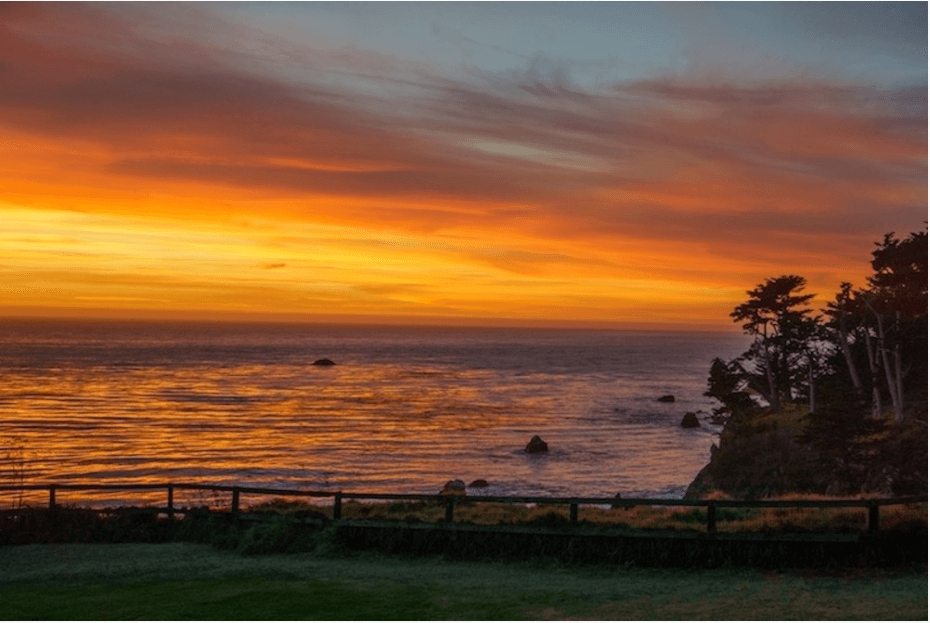
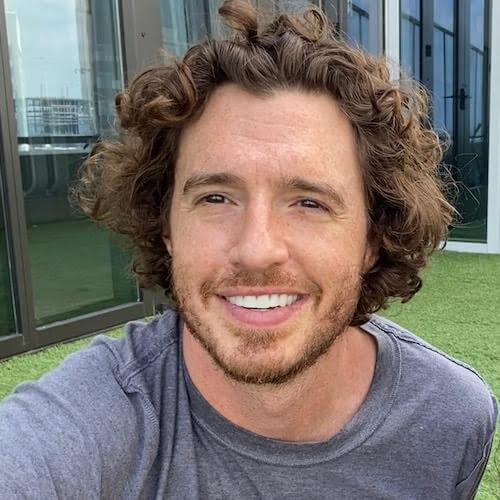
“Remembering to be as self compassionate as I can and praying to the divine that we're all a part of.”
–Aaron
“Prayer, reading, meditation, walking.”
–Karen
“Erratically — which is an ongoing stream of practice to find peace.”
–Charles
“Try on a daily basis to be kind to myself and to realize that making mistakes is a part of the human condition. Learning from our mistakes is a journey. But it starts with compassion and caring. First for oneself.”
–Steve
“Physically: aerobic exercise, volleyball, ice hockey, cycling, sailing. Emotionally: unfortunately I have to work to ‘not care’ about people or situations which may end painfully. Along the lines of ‘attachment is the source of suffering’, so best to avoid it or limit its scope. Sad though because it could also be the source of great joy. Is it worth the risk?“
–Rainer
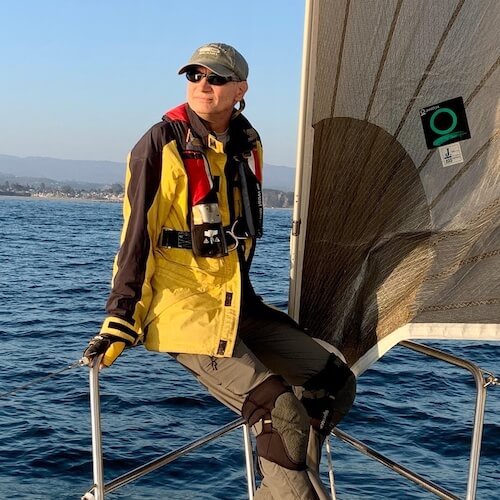

“It's time for my heart to be nurtured on one level yet contained on another. To go easy on me and to allow my feelings to be validated, not judged harshly. On the other hand, to let the heart rule with equanimity and not lead the mind and body around like a master.”
–Suzanne
“I spend time thinking of everything I am grateful for, and I try to develop my ability to express compassion for myself and others without reservation. I take time to do the things I need to do to keep myself healthy and happy. This includes taking experiential workshops, fostering relationships, and participating within groups which have a similar interest to become a more compassionate and fulfilled being.“
–Peter
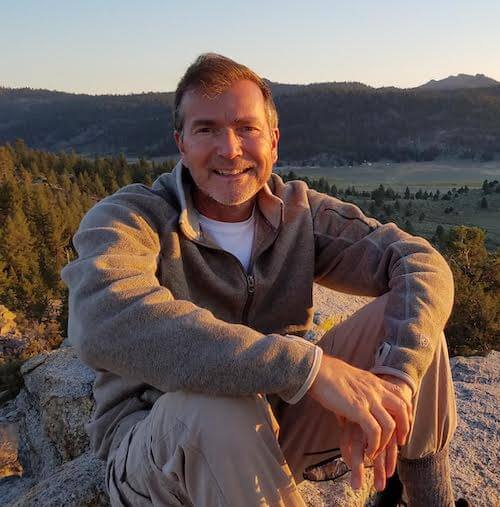
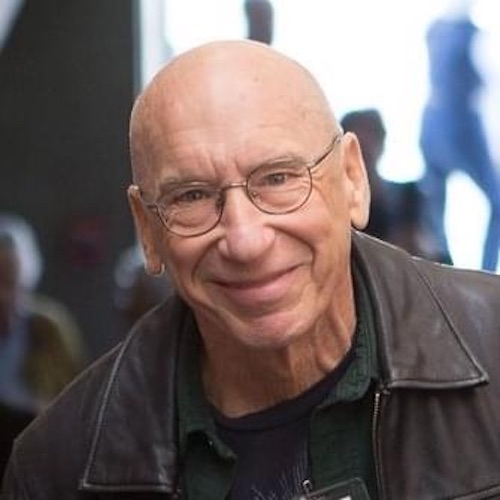
“Self-forgiveness for my own judgments. And oh yeah, coming to Esalen.”
–David B.
“Hmm, this is a tough one! I guess I take care of my heart through fostering relationships with people I feel connected to. Spending quality time with them (whether we're on the phone, through messages/letters, on Zoom, or in-person). Being there for them, listening to them, sharing what's going on with me, my struggles and my successes... like we do in the Esalen weekly Friends of Esalen Zoom sessions!”
–Lori

“I remind myself in many ways of the fact that " Love is all there is!" LOVE is the prize and this one precious life is the stage we get to learn our lessons. I get out into nature, hike, camp, river kayak, fly fish, garden, I create, I dance (not enough!), and I remain grateful for each day, each breath, each moment. Being in the moment, awake, and remembering the gift of life and my feeling of gratitude for all of creation.”
–Steven
“My physical heart by limiting stress and eating a heart-healthy diet. My emotional heart by staying in love with the world and by knowing that all disappointment and loss will pass.“
–David Z.
Today, September 29, is World Heart Day. Strike up a conversation with your own heart and as you feel comfortable, encourage others to do the same. As part of our own transformations and self-care, we sometimes ask for others to illuminate and enliven our hearts or speak our love language.
What if we could do this for ourselves too, even if just for today… or to start a heart practice, forever?

Ron Frederick and Timothy J. Beyer are on a mission to enhance the lives of gay men who find it challenging to feel present in their lives and closer to the people they love.
In their upcoming workshop, Emotional Mindfulness, Connection and Healing for Gay Men, Ron (pictured right) and Timothy (below) explore the origins of certain fears inherent in gay men, how those fears create a sense of detachment from the wisdom and power within and present guideposts toward empowerment.
They draw from their work as psychologists and co-founders of the Center for Courageous Living, a psychotherapy, coaching and consultation practice in Beverly Hills.
“Most gay men grow up in heterosexual families and may have knowingly or unknowingly learned to bury and distance themselves from feelings they perceived to be unsafe or unacceptable to others,” Timothy says.
“These previously perceived as unacceptable feelings may have been a threat to the safety and security of emotional connection with early caregivers and family members. Our hope is to shed light on new aspects of self-awareness and increased emotional mindfulness.”
For many years, Ron and Timothy’s work in the field of psychology has fueled an ever-evolving effort to help gay men. Ron is the author of Loving Like You Mean It: Use the Power of Emotional Mindfulness to Transform Your Relationships and Living Like You Mean It: Use the Wisdom and Power of Your Emotions to Get the Life You Really Want. Timothy has been in practice for more than 20 years with a sharp focus on helping others find clarity and achieve their personal goals.
“What I love most about this work is that I can experience being with others during their journey to self-discovery,” Timothy says. “It is incredibly gratifying to witness an awakening with somebody when they see new options and opportunities or new ways of being in the world, especially when they connect within to a deeper emotional mindfulness.”

Ron and Timothy also ground their work in contemporary neuroscience and cull from a variety of healing and growth models, such as Accelerated Experiential Dynamic Psychotherapy (AEDP), which revolves around experientially making the most out of opportunities for both healing and transformation. One of the significant benefits of AEDP is the undoing of aloneness.
To that end, their workshop arrives at a vital juncture. According to the American Psychiatric Association, gay men experience adverse mental health outcomes, including mood disorders, more frequently than heterosexual men.
Another recent study conducted by the University of Hawaii at Mānoa, reveals gay men in China, ages 25–29, are eight times more likely to feel criticized and rejected compared with men in that country ages 20 or younger.
“We know through research that for all of us, early-life experiences contribute to our internal working models about who we are and what others are like in the world,” Ron says.
“These models can unconsciously color our perceptions and guide our behaviors, impacting how we relate to others, what to expect and what to do. It can be very challenging for many of us to break out of old patterns and early beliefs that lead us to behave as though certain emotions are dangerous. The goal is to update our old neural wiring.”
Ron and Timothy believe one of the best ways to allow that “update” to occur is in an experiential workshop, which provides room to tame anxiety and become connected to others. “We know that for adults, learning and growth happens through experience,” Timothy says. “Ron and I like to create safe opportunities to lean into self-exploration where we can notice emotions and bodily felt experiences, and practice vulnerability by sharing with others.”
But what happens after the workshop? What practices can gay men implement to be more emotionally present when they’re back home? While Ron and Timothy offer a variety of take-home tools for the men they work with, they share a handful of helpful actions with Esalen News:
Five key actions to employ more mindfulness:
“We’re always impressed by the openness and vulnerability of those who do come to a workshop and are seeking growth and wanting to learn,” Ron adds.
“And we’re delighted to be back at Esalen to share this information," Timothy says. "We celebrate the fact that Esalen provides such a graceful setting for creating safety, for providing space to take time out of our busy and demanding lives and for offering time for exploration and nurturing.”


“Remembering to be as self compassionate as I can and praying to the divine that we're all a part of.”
–Aaron
“Prayer, reading, meditation, walking.”
–Karen
“Erratically — which is an ongoing stream of practice to find peace.”
–Charles
“Try on a daily basis to be kind to myself and to realize that making mistakes is a part of the human condition. Learning from our mistakes is a journey. But it starts with compassion and caring. First for oneself.”
–Steve
“Physically: aerobic exercise, volleyball, ice hockey, cycling, sailing. Emotionally: unfortunately I have to work to ‘not care’ about people or situations which may end painfully. Along the lines of ‘attachment is the source of suffering’, so best to avoid it or limit its scope. Sad though because it could also be the source of great joy. Is it worth the risk?“
–Rainer


“It's time for my heart to be nurtured on one level yet contained on another. To go easy on me and to allow my feelings to be validated, not judged harshly. On the other hand, to let the heart rule with equanimity and not lead the mind and body around like a master.”
–Suzanne
“I spend time thinking of everything I am grateful for, and I try to develop my ability to express compassion for myself and others without reservation. I take time to do the things I need to do to keep myself healthy and happy. This includes taking experiential workshops, fostering relationships, and participating within groups which have a similar interest to become a more compassionate and fulfilled being.“
–Peter


“Self-forgiveness for my own judgments. And oh yeah, coming to Esalen.”
–David B.
“Hmm, this is a tough one! I guess I take care of my heart through fostering relationships with people I feel connected to. Spending quality time with them (whether we're on the phone, through messages/letters, on Zoom, or in-person). Being there for them, listening to them, sharing what's going on with me, my struggles and my successes... like we do in the Esalen weekly Friends of Esalen Zoom sessions!”
–Lori

“I remind myself in many ways of the fact that " Love is all there is!" LOVE is the prize and this one precious life is the stage we get to learn our lessons. I get out into nature, hike, camp, river kayak, fly fish, garden, I create, I dance (not enough!), and I remain grateful for each day, each breath, each moment. Being in the moment, awake, and remembering the gift of life and my feeling of gratitude for all of creation.”
–Steven
“My physical heart by limiting stress and eating a heart-healthy diet. My emotional heart by staying in love with the world and by knowing that all disappointment and loss will pass.“
–David Z.
Today, September 29, is World Heart Day. Strike up a conversation with your own heart and as you feel comfortable, encourage others to do the same. As part of our own transformations and self-care, we sometimes ask for others to illuminate and enliven our hearts or speak our love language.
What if we could do this for ourselves too, even if just for today… or to start a heart practice, forever?

Ron Frederick and Timothy J. Beyer are on a mission to enhance the lives of gay men who find it challenging to feel present in their lives and closer to the people they love.
In their upcoming workshop, Emotional Mindfulness, Connection and Healing for Gay Men, Ron (pictured right) and Timothy (below) explore the origins of certain fears inherent in gay men, how those fears create a sense of detachment from the wisdom and power within and present guideposts toward empowerment.
They draw from their work as psychologists and co-founders of the Center for Courageous Living, a psychotherapy, coaching and consultation practice in Beverly Hills.
“Most gay men grow up in heterosexual families and may have knowingly or unknowingly learned to bury and distance themselves from feelings they perceived to be unsafe or unacceptable to others,” Timothy says.
“These previously perceived as unacceptable feelings may have been a threat to the safety and security of emotional connection with early caregivers and family members. Our hope is to shed light on new aspects of self-awareness and increased emotional mindfulness.”
For many years, Ron and Timothy’s work in the field of psychology has fueled an ever-evolving effort to help gay men. Ron is the author of Loving Like You Mean It: Use the Power of Emotional Mindfulness to Transform Your Relationships and Living Like You Mean It: Use the Wisdom and Power of Your Emotions to Get the Life You Really Want. Timothy has been in practice for more than 20 years with a sharp focus on helping others find clarity and achieve their personal goals.
“What I love most about this work is that I can experience being with others during their journey to self-discovery,” Timothy says. “It is incredibly gratifying to witness an awakening with somebody when they see new options and opportunities or new ways of being in the world, especially when they connect within to a deeper emotional mindfulness.”

Ron and Timothy also ground their work in contemporary neuroscience and cull from a variety of healing and growth models, such as Accelerated Experiential Dynamic Psychotherapy (AEDP), which revolves around experientially making the most out of opportunities for both healing and transformation. One of the significant benefits of AEDP is the undoing of aloneness.
To that end, their workshop arrives at a vital juncture. According to the American Psychiatric Association, gay men experience adverse mental health outcomes, including mood disorders, more frequently than heterosexual men.
Another recent study conducted by the University of Hawaii at Mānoa, reveals gay men in China, ages 25–29, are eight times more likely to feel criticized and rejected compared with men in that country ages 20 or younger.
“We know through research that for all of us, early-life experiences contribute to our internal working models about who we are and what others are like in the world,” Ron says.
“These models can unconsciously color our perceptions and guide our behaviors, impacting how we relate to others, what to expect and what to do. It can be very challenging for many of us to break out of old patterns and early beliefs that lead us to behave as though certain emotions are dangerous. The goal is to update our old neural wiring.”
Ron and Timothy believe one of the best ways to allow that “update” to occur is in an experiential workshop, which provides room to tame anxiety and become connected to others. “We know that for adults, learning and growth happens through experience,” Timothy says. “Ron and I like to create safe opportunities to lean into self-exploration where we can notice emotions and bodily felt experiences, and practice vulnerability by sharing with others.”
But what happens after the workshop? What practices can gay men implement to be more emotionally present when they’re back home? While Ron and Timothy offer a variety of take-home tools for the men they work with, they share a handful of helpful actions with Esalen News:
Five key actions to employ more mindfulness:
“We’re always impressed by the openness and vulnerability of those who do come to a workshop and are seeking growth and wanting to learn,” Ron adds.
“And we’re delighted to be back at Esalen to share this information," Timothy says. "We celebrate the fact that Esalen provides such a graceful setting for creating safety, for providing space to take time out of our busy and demanding lives and for offering time for exploration and nurturing.”


“Remembering to be as self compassionate as I can and praying to the divine that we're all a part of.”
–Aaron
“Prayer, reading, meditation, walking.”
–Karen
“Erratically — which is an ongoing stream of practice to find peace.”
–Charles
“Try on a daily basis to be kind to myself and to realize that making mistakes is a part of the human condition. Learning from our mistakes is a journey. But it starts with compassion and caring. First for oneself.”
–Steve
“Physically: aerobic exercise, volleyball, ice hockey, cycling, sailing. Emotionally: unfortunately I have to work to ‘not care’ about people or situations which may end painfully. Along the lines of ‘attachment is the source of suffering’, so best to avoid it or limit its scope. Sad though because it could also be the source of great joy. Is it worth the risk?“
–Rainer


“It's time for my heart to be nurtured on one level yet contained on another. To go easy on me and to allow my feelings to be validated, not judged harshly. On the other hand, to let the heart rule with equanimity and not lead the mind and body around like a master.”
–Suzanne
“I spend time thinking of everything I am grateful for, and I try to develop my ability to express compassion for myself and others without reservation. I take time to do the things I need to do to keep myself healthy and happy. This includes taking experiential workshops, fostering relationships, and participating within groups which have a similar interest to become a more compassionate and fulfilled being.“
–Peter


“Self-forgiveness for my own judgments. And oh yeah, coming to Esalen.”
–David B.
“Hmm, this is a tough one! I guess I take care of my heart through fostering relationships with people I feel connected to. Spending quality time with them (whether we're on the phone, through messages/letters, on Zoom, or in-person). Being there for them, listening to them, sharing what's going on with me, my struggles and my successes... like we do in the Esalen weekly Friends of Esalen Zoom sessions!”
–Lori

“I remind myself in many ways of the fact that " Love is all there is!" LOVE is the prize and this one precious life is the stage we get to learn our lessons. I get out into nature, hike, camp, river kayak, fly fish, garden, I create, I dance (not enough!), and I remain grateful for each day, each breath, each moment. Being in the moment, awake, and remembering the gift of life and my feeling of gratitude for all of creation.”
–Steven
“My physical heart by limiting stress and eating a heart-healthy diet. My emotional heart by staying in love with the world and by knowing that all disappointment and loss will pass.“
–David Z.
Today, September 29, is World Heart Day. Strike up a conversation with your own heart and as you feel comfortable, encourage others to do the same. As part of our own transformations and self-care, we sometimes ask for others to illuminate and enliven our hearts or speak our love language.
What if we could do this for ourselves too, even if just for today… or to start a heart practice, forever?